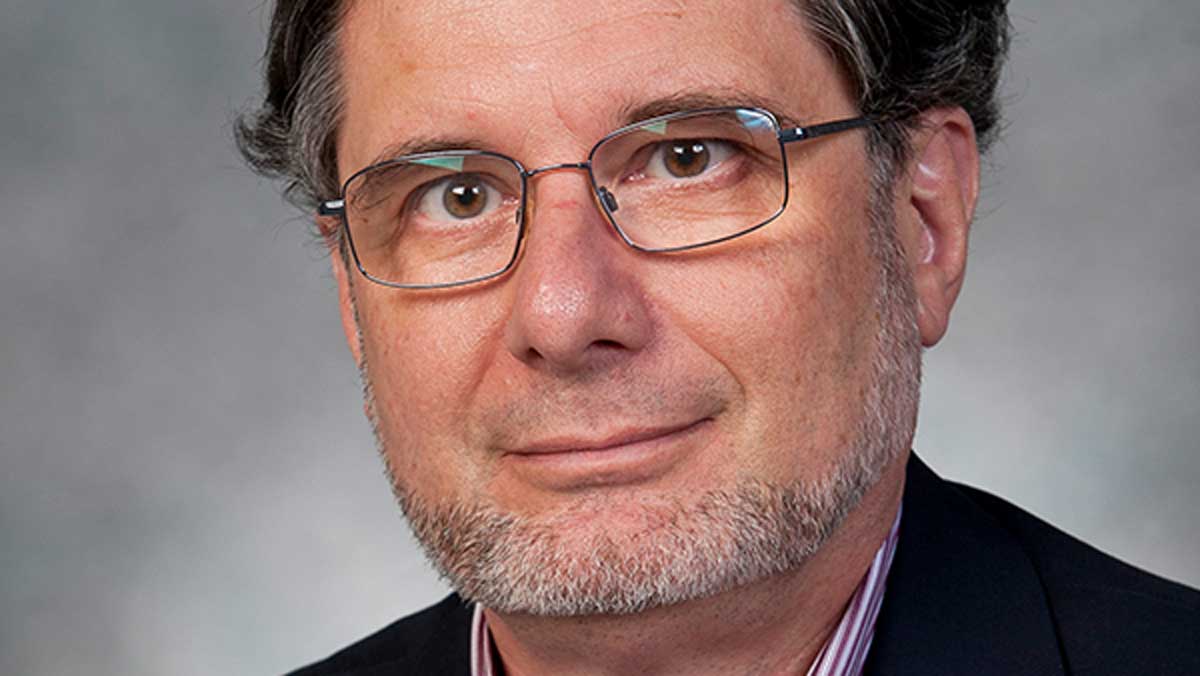Kyriacos Zygourakis, the A.J. Hartsook Professor of Chemical and Biomolecular Engineering and Professor of Bioengineering, has been given the Chemical and Biomolecular Engineering (ChBE) Professional Excellence Award at the Rice ChBE virtual networking event on November 12, 2020.
The Professional Excellence Award, which is awarded approximately every two years, was established by the ChBE Alumni Advisory Committee to honor a Rice ChBE faculty member who has made outstanding contributions to undergraduate and graduate education at Rice University. The winner of the award is selected by students and alumni of the department from amongst current or former faculty members of the department.
Professor Zygourakis completed his PhD at the University of Minnesota and started as an Assistant Professor of Chemical Engineering at Rice in August 1980, becoming full professor in 1991. He was one of the five initial faculty members forming the Bioengineering department at Rice when it spun off from Chemical Engineering in 1996. He rejoined the Chemical Engineering department in 1998 as Chair, serving in that position until 2013. During that time, the Chemical Engineering department broadened its scope and was renamed Chemical and Biomolecular Engineering.
During his 40 years at Rice, Zygourakis has made a significant impact on numerous graduate and undergraduate students through both his teaching and research. He has advised 25 PhD and six MS students with thesis projects ranging from coal gasification to tissue engineering and soil remediation, directed the research of 4 postdoctoral fellows and collaborated with several colleagues from Rice science and engineering departments. He has taught several graduate and undergraduate courses, especially in the areas of applied mathematics in chemical engineering, chemical reaction engineering and process control.
His teaching is always geared toward developing a deep understanding of concepts — “getting to the root of the problem” — rather than memorization and application of formulas. That’s why he never gives closed book exams, something I’m sure his students appreciated (although they may not have always appreciated some of the questions at the time). He never misses an opportunity to build that conceptual understanding in his students.
According to one student and former teaching assistant, not only did Zygourakis work to make sure students understood the fundamentals and how they related to solving real problems, but he made his classes engaging and enjoyable, and making a personal connection with is students.
One of the reasons Zygourakis chose to study at the University of Minnesota for his PhD was that was where Neil Amundson and Rutherford Aris, both pioneers in the application of advanced mathematics to chemical engineering, were teaching.
When he came to Rice, he brought with him his background and philosophy on the importance of mathematical analysis and modeling in chemical engineering, establishing new chemical engineering courses in applied mathematics early in his time at Rice. He is still teaching courses in applied math, mathematical modeling, and numerical methods to chemical engineers. His research is currently focusing on environmental problems that include the pyrolytic remediation of contaminated soils and the transport of nitrogen fertilizers in biochar-amended soils.
While alumni and current students would have interacted with Dr. Zygourakis as teacher and advisor for their few years at Rice, most are not likely aware of his broader, and in some cases behind-the-scenes, contributions to Rice and the ChBE department over the years.
As department chair, he oversaw rebuilding the department after the spin-off of the Bioengineering department and hired most of the senior faculty currently in the department. He helped to transform the curriculum to allow for specializations in areas such as biotechnology, environment, energy and sustainability, materials, and computation. He created and taught a new interdisciplinary course in “Engineering Sustainable Communities,” while helping at the same time to develop a strategic plan for the university in energy and the environment. These and other contributions helped build the reputation of the department in energy and sustainability, advanced materials, and biosystems engineering.
He thinks and cares deeply about issues surrounding education and this shows in the strength of the ChBE department to which he has been dedicated for his entire professional career. Not only have current students and alumni from the past 40 years benefited from his dedication, but future students will benefit for many years to come.

